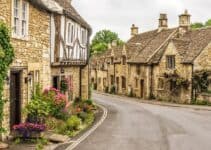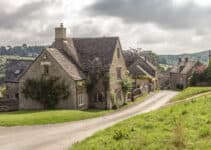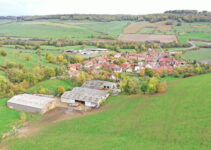Although the difference between a village vs countryside might seem obvious, it can be easy to confuse the two. After all, they’re often used interchangeably and are quite closely linked in most situations.
In this article, we’ll look at the differences between a village vs countryside. Of course, we should start with a definition of each to make the explanation easier.
Village vs Countryside
Luckily, both concepts are easy to define using strict guidelines. In the UK, for example, there’s a very clear definition of a village compared to other settlement sizes (like a municipality). So, let’s jump right in.
Village Meaning
The definition of a village is a small habitable settlement, typically in a rural area. A village is larger than a hamlet and smaller than a town. In terms of population size, a village is typically classified as having between 500 and 2,500 inhabitants, although this isn’t always the case.
Other important factors in defining a village include:
· Proximity to a water source, usually a river or the coast.
· Relation to a rural industry, such as agriculture, mining, or fishing.
· In the UK, a village will typically have a small church, which often served as the founding official building.
· Often, there is an obvious green belt around the settlement. In short, this is a space of undeveloped land that separates one settlement from another.
There is such a thing as an urban village, but that’s not important for this article. In short, it’s an area of medium-density housing located in a more built-up area.
Using population to define a village isn’t a particularly helpful metric. For example, the smallest countryside village in the UK is Fordwich, with a population of just 400.
On the other hand, Ecclesfield in South Yorkshire has a population of more than 32,000! It’s still a village because it doesn’t meet any of the criteria for it to become a town. For the prettiest villages in Devon or prettiest villages in Kent check out our other articles.
As such, the clearest metrics for defining a village are the points listed above.
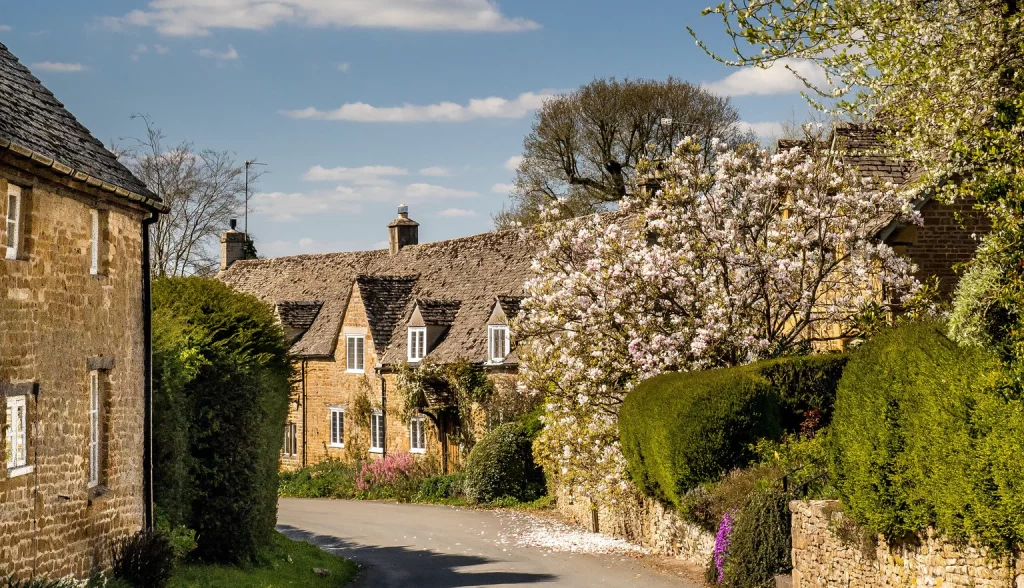
Countryside Meaning
The countryside is a space of rural land that’s often used for agricultural purposes. For example, we might use the term countryside when referring to crop fields or animal rearing.
However, countryside meaning can also include the local scenery, such as hills, forests and waterways that don’t feature heavy human settlement.
Countryside as a term sticks out from similar concepts. It came about in the middle of the 15th century to perhaps mean ‘one side of the country’ or ‘section of a country’.
This stands in contrast to something like seaside, which originated in the 12th century to literally mean ‘land next to the sea’. The same principle is true for riverside.
So why is countryside so different? Well, there could be a few reasons. The first is that it was coined to follow the trend of the other words. For example, the ideas of seaside and riverside existed, so countryside seemed like a logical way to define land that was beside a settlement.
Another explanation can be found by breaking it down into its two words: country and side. The original definition of side is still the one we use: a part of something.
So, the countryside meaning would literally mean ‘a part of the country’. This is a fairly reasonable explanation if you think of it as an economic term to say who land belonged to.
What’s the Difference Between Countryside and Village?
The biggest difference between countryside and village is that the former is a space while the latter is essentially a collection of buildings. Generally, villages will be found in the countryside, although it’s more accurate to class them as within a rural area.
This is because the countryside, by its very nature, is ‘wild’ land. A village, however, could sit next to a few other countryside villages along a busy road.
This would still count as rural when compared to homes within a town or city, but it’s certainly more developed than an area of countryside.
Also, the countryside is more commonly used to discuss undeveloped land, such as fields, meadows, woods, etc. Rural is a more accurate term for developed human settlements that are sparsely populated and/or outside of suburban and urban areas.
The biggest difference, therefore, boils down to the fact that they’re not really comparable concepts. It’s like comparing apples to oranges: you might see them in the same place, and they might seem like they have things in common, but they’re not the same.
For example, in the countryside, you’ll find both villages and hamlets. Hamlets are, in the UK at least, the smallest classification of settlement.
A hamlet generally has no place of worship or central meeting space, which are factors that separate it from a village.
These are far more common in the countryside because they suit the environment better. A village, on the other hand, will often have a more convenient connection to a local town because villages often arose out of links with production.
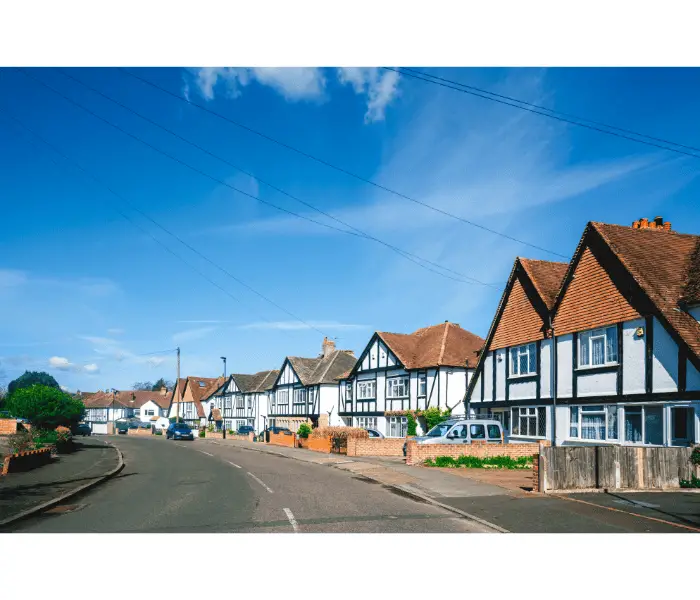
Why is Village Called Countryside?
A village might be called countryside because, to an extent, the two concepts can seem interchangeable. After all, most people see villages in the countryside. But, as discussed, they’re definitely not the same thing.
The countryside is any land outside of urban or suburban spaces. It contains human settlements, such as countryside villages, but the terms aren’t interchangeable. You can say you live in the countryside or that you live in a village, however.
And this might be part of the confusion for non-native English speakers. Plenty of people will say they live in the countryside, when what they actually mean is that they live in a small settlement in the countryside. Even so, a village isn’t called countryside.
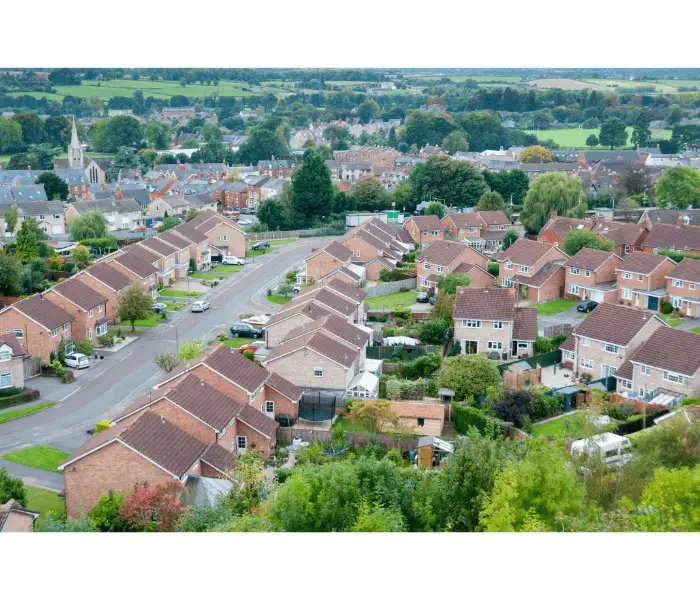
Countryside and Village Difference
Hopefully, this article has cleared up any confusion you might have about a village vs the countryside. Although it’s common for them to be used in each other’s places, this isn’t accurate.
So, next time someone tells you they live in the countryside, make sure you correct them from a grammatical perspective!
